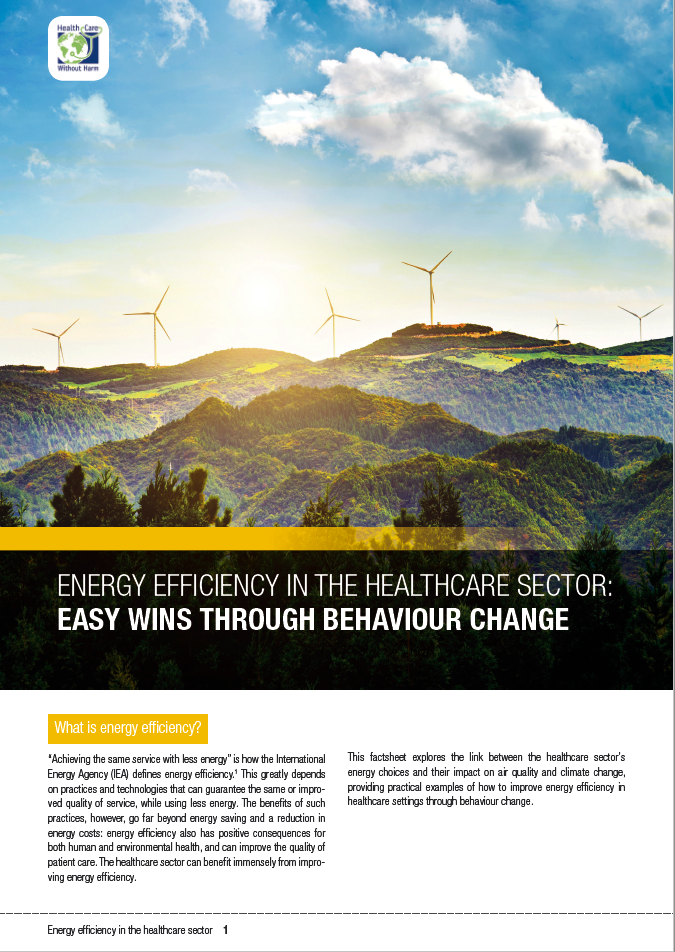Improving energy efficiency is an easy and simple way for the healthcare sector to reduce costs whilst improving both human and environmental health through reduced emissions and better air quality. HCWH Europe has just released a factsheet showing how low-cost behaviour change programmes can simultaneously increase energy efficiency and improve the quality of patient care in health facilities.
“The health sector exists to protect health. Hospitals and health systems have the moral responsibility and social obligation to be leaders in the fight against climate change by reducing their own toxic emissions and minimising the harm they cause to human and environmental health."
- Ana-Christina Gaeta, HCWH Europe Climate & Resources Policy Officer
While obvious measures such as replacing energy systems with more efficient ones or using renewable energy sources will yield large, long-term financial savings and environmental and health benefits for the healthcare sector, they require large investments and are often unfeasible within current healthcare budgets.
As demonstrated by the case studies in the factsheet, simple low-cost staff empowerment measures can also save significant amounts of energy and money - reducing GHG emissions and harmful air pollutants through effective behaviour change approaches. HCWH Europe encourages hospitals and health systems to learn from these experiences and introduce capacity building programmes in their facilities.
Taking simple steps towards greater energy efficiency, hospitals and health systems can improve the health of their patients and local communities, and reduce the associated costs of patient re-admissions and lengthy stays.
For more information on reducing the healthcare sector’s climate footprint, check out HCWH Europe’s most recent climate report as well as webinars and infographics on our climate resources page.
